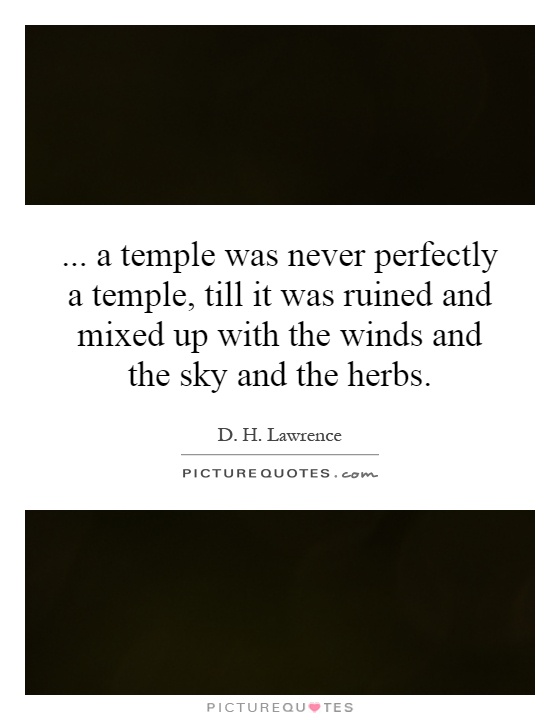a temple was never perfectly a temple, till it was ruined and mixed up with the winds and the sky and the herbs

a temple was never perfectly a temple, till it was ruined and mixed up with the winds and the sky and the herbs
D.H. Lawrence, a renowned English writer, poet, and essayist, was known for his deep connection to nature and his belief in the interconnectedness of all things. In his works, Lawrence often explored the idea of the natural world as a source of spiritual enlightenment and renewal. One of his most famous quotes, "a temple was never perfectly a temple, till it was ruined and mixed up with the winds and the sky and the herbs," encapsulates this belief perfectly.Lawrence believed that true spirituality could not be found in the rigid structures of man-made temples, but rather in the wild and untamed beauty of the natural world. He saw nature as a living, breathing entity that was inextricably linked to the human soul. In his eyes, a temple only truly became sacred when it was allowed to blend with the elements, becoming a part of the landscape rather than standing apart from it.
For Lawrence, the idea of a ruined temple was not a symbol of destruction, but rather a symbol of transformation and rebirth. He believed that when a temple was allowed to fall into disrepair, it became more than just a building – it became a part of the earth itself. The winds, the sky, and the herbs that surrounded the temple were not separate from it, but rather integral parts of its essence.
In this way, Lawrence saw the natural world as a source of spiritual nourishment and renewal. He believed that by immersing oneself in the beauty of nature, one could find a deeper connection to the divine. Just as a ruined temple became more sacred by blending with the elements, so too could a person become more whole by embracing the wildness of the world around them.












 Friendship Quotes
Friendship Quotes Love Quotes
Love Quotes Life Quotes
Life Quotes Funny Quotes
Funny Quotes Motivational Quotes
Motivational Quotes Inspirational Quotes
Inspirational Quotes